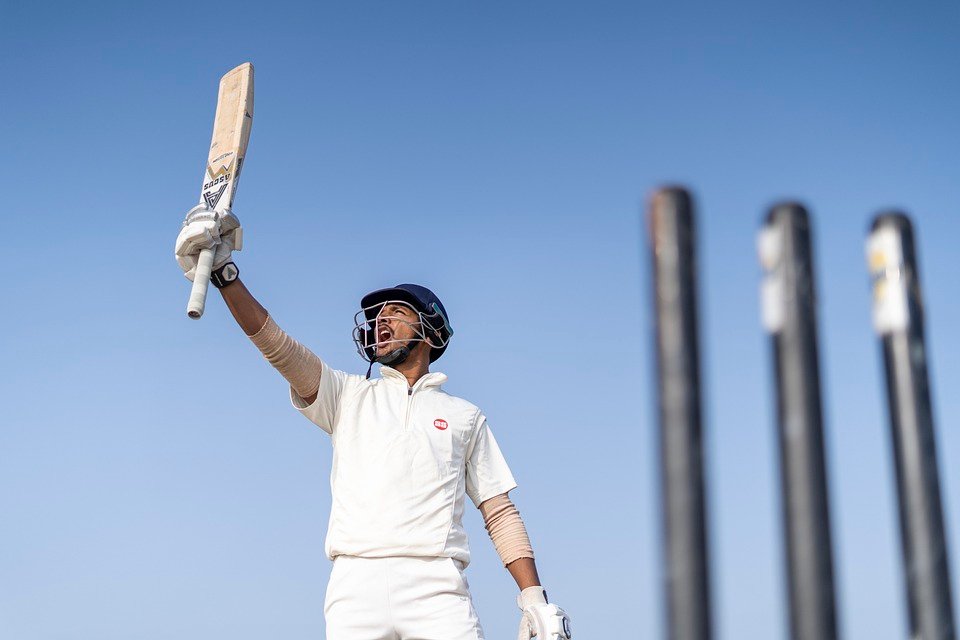In recent news, Pakistan demands urgent clarity from the ICC over India’s refusal to participate in the 2025 cricket events. This situation has sparked significant conversations within the cricket community, as fans and experts alike are eager to understand the implications of such a decision. I believe that getting clear answers from the ICC is crucial for maintaining the integrity of international cricket and fostering healthy competition among nations. In this article, we promise to provide you with the latest updates and in-depth information regarding Pakistan’s official stance and the overall impact of India’s non-participation in 2025.
Looking ahead, the future of cricket in South Asia hinges on how the ICC addresses Pakistan’s concerns about India’s withdrawal. I feel that clarity from the governing body will play a vital role in shaping team strategies and fan engagement for upcoming tournaments. With over ten years of experience in covering cricket and sports since 2013, we are committed to keeping you informed about this pressing issue. Our expertise allows us to analyze various perspectives and offer a comprehensive view on the developments surrounding Pakistan demands urgent clarity from ICC over India’s refusal to participate in 2025.
Pakistan Demands Urgent Clarity from ICC on India’s 2025 Refusal
Understanding the Issue
In the world of cricket, certain events captivate our attention more than others. The 2025 tournament scheduled in India is one such event. It has become a focal point of discussion, especially after Pakistan expressed its concerns regarding India’s decision to potentially refuse participation. This situation raises questions about sportsmanship, relationships between countries, and the openness of the International Cricket Council (ICC) in handling such matters. What’s rather intriguing is how these cricketing rivals can find themselves entangled in politics, influencing the game we all adore.
Cricket is more than just a game for many people. It’s a way of life that unites fans across various backgrounds. In this light, when one nation feels slighted or uncertain, it can create ripples throughout the rich tapestry of international cricket. Fans eagerly follow these developments, hoping for a clarification that can foster understanding and cooperation, allowing the sport to thrive in its fullest capacity.
The Stand of Pakistan
Pakistan has firmly voiced its demand for clarity from the ICC regarding India’s stance on the 2025 matches. Officials and cricket enthusiasts believe that transparency is essential to maintain the integrity of the game. Every team, including Pakistan, yearns for a fair chance to compete and showcase their talents on a global platform. While desired harmony often finds its way into the sport, any uncertainty can dampen the spirits of players and fans alike.
I feel that the call for clarity is not only about cricket; it’s about respect and acknowledgment. By seeking clear communication from the ICC, Pakistan aims to uphold its right to participate in an environment free from ambiguity. The expectation is that the ICC will act as a mediator, ensuring that all participating nations are treated fairly, thus preserving the spirit of healthy competition.
The Role of the ICC
The ICC serves as the governing body for cricket, overseeing the rules, regulations, and schedules of international matches. Its role becomes particularly pivotal in contentious situations such as this, where clarifications might prevent misunderstandings between nations. I think the ICC must step up in providing the necessary information to ease the tension and uncertainty surrounding the 2025 tournament.
In my opinion, transparency from the ICC will not only benefit Pakistan but also other nations that are invested in the tournament. The ICC has a duty to facilitate fair play; thus, it must keep communication channels open and provide updates regarding India’s participation. If teams feel overlooked or uncertain, it can hinder mutual respect and camaraderie, which should be the essence of sports.
India’s Perspective
From India’s viewpoint, various factors could influence its decision to participate in the 2025 event. Domestic politics, security concerns, and logistical challenges often come into play. Although this context does not alter the expectations from Pakistan, it’s essential to consider the complexities involved. Engaging in cricket at a high level demands more than just sportsmanship; it often involves navigating intricate relationships.
I believe it’s crucial for all parties involved to engage in open dialogue. By understanding each other’s perspectives, nations can reach a consensus that prioritizes the game itself. The challenges that India faces deserve recognition and consideration—communication is key to addressing concerns on both sides.
Impacts on Players and Fans
For players, being part of significant international events like the 2025 tournament defines their careers. The uncertainty surrounding participation can create a sense of anxiety and confusion. Players from Pakistan and India, who inspire millions, deserve to focus on their game without the added stress of political implications.
Furthermore, fans from both nations are passionate supporters who follow every match religiously. The demand for clarity from Pakistan serves to reassure these fans that their voices matter. When discussions revolve around participation in such notable events, it goes beyond mere numbers—it involves their emotions, hopes, and pride in their teams.
Building Bridges
In an atmosphere charged with competitive spirit, building bridges should be the priority. Cricket can serve as a powerful medium for fostering goodwill among nations. History shows that sports often transcend political differences, promoting unity and understanding instead. By focusing on collaboration and teamwork, both India and Pakistan can potentially reshape their narratives around the sport.
I think when countries engage with an open heart, it allows the spirit of cricket to flourish. The 2025 tournament can become a symbol of reconciliation, showcasing the positive efforts of both nations to come together for the love of the game. This change in mindset may inspire future generations to respect differences while celebrating their shared passion.
Conclusion: The Path Forward
The situation surrounding India’s refusal in 2025 has unfolded into a broader discussion about the responsibilities of governing bodies and nations in cricket. It’s clear that Pakistan’s demands for urgent clarity from the ICC are not just about sports—they encompass a desire for fairness, respect, and collaboration in cricket.
As fans and supporters, we must advocate for an environment that prioritizes unyielding camaraderie among nations through sports. In my opinion, the road to resolution can only begin when all parties engage transparently and proactively. After all, cricket should be a celebration—one that allows players to shine, fans to cheer, and nations to unite in competition and respect.





